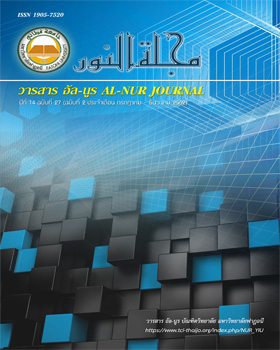Domestic Violence Against Wives in the context of “male marginality” in Aceh, Indonesia
คำสำคัญ:
Male marginality, Male privilege, Violence, Gender, Aceh Wivesบทคัดย่อ
This article examines an often overlooked issue in studies of domestic violence against wives by exploring a phenomenon "Male Marginality" as a tool for interpreting domestic violence against wives in the social context of male marginality that has been changed and replaced with male privilege in the context of Islam changing women's power in Aceh. The study applied ethnographic research, by collecting information from the life experiences of women aged 26-60 years who were abused or experienced marital violence victims by their husbands. The fieldwork was conducted between 2014 and 2017 in Aceh, Indonesia. the findings revealed that the concept of “male marginality” has been turned into a male privilege by men in the name of the religion to justify violence against their wives or to create an opportunity to marry a wealthy woman in the hopes for depending on them economically. In the meantime, women are worried about male privilege realizing that they need to obey their husbands because of religion. Besides, the authority of husbands is backed by local culture, which is likely to result in women being abused by their husbands. Thus, the women describe male marginality as reducing the chance of being abused by their husbands and the possibility of polygamy.



